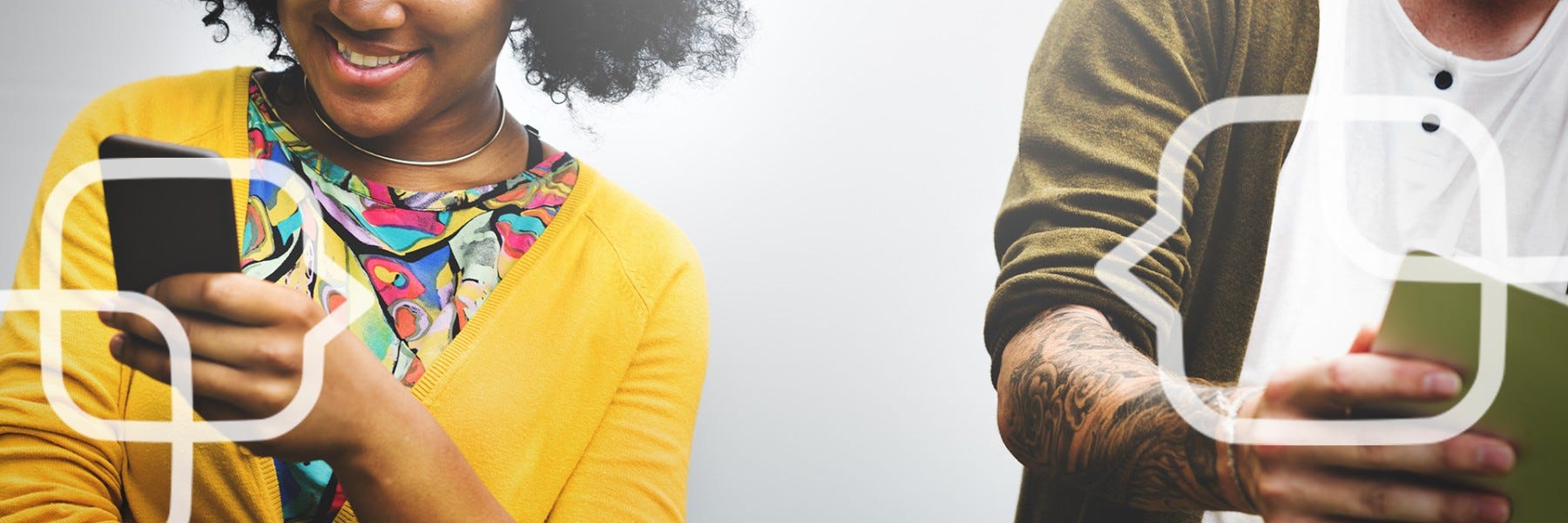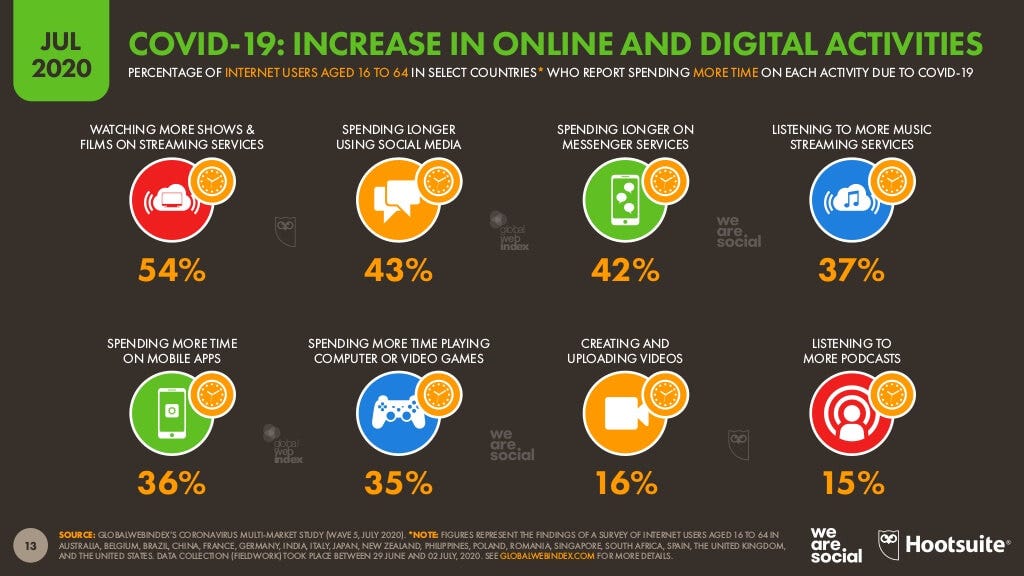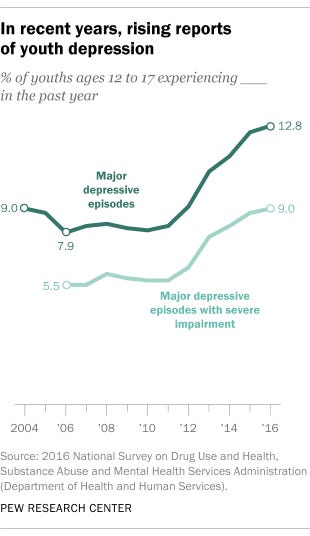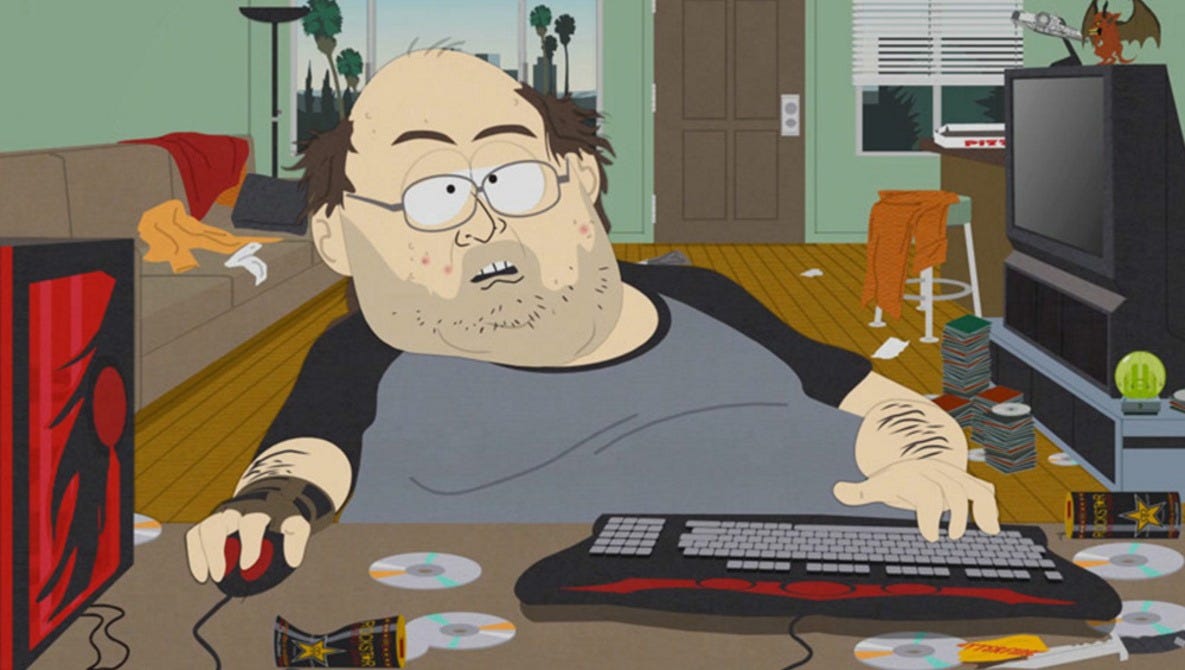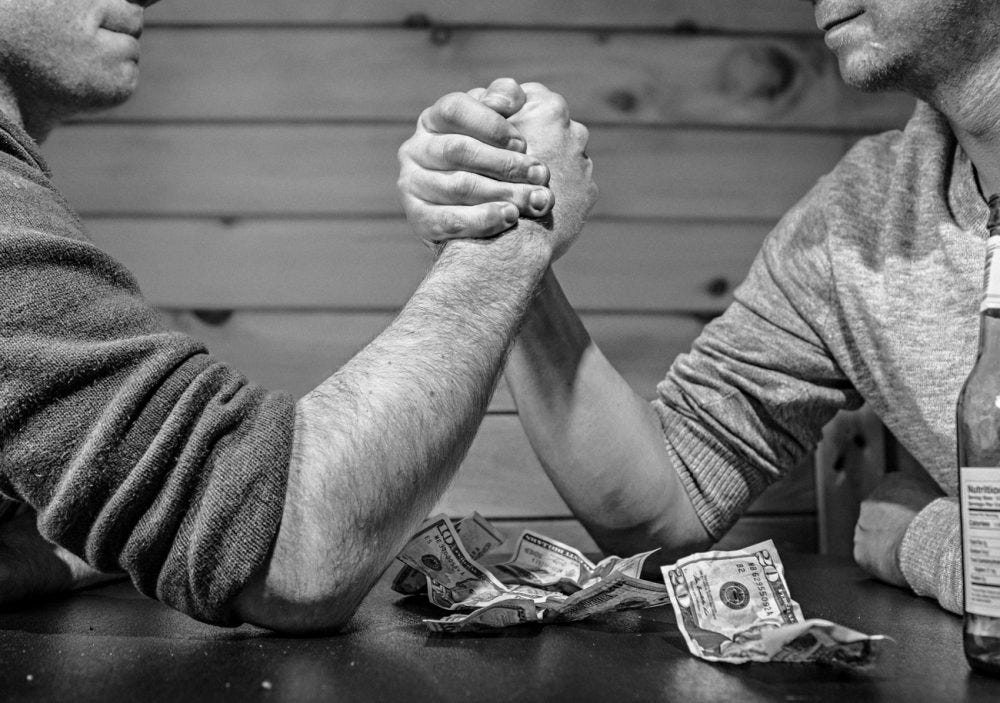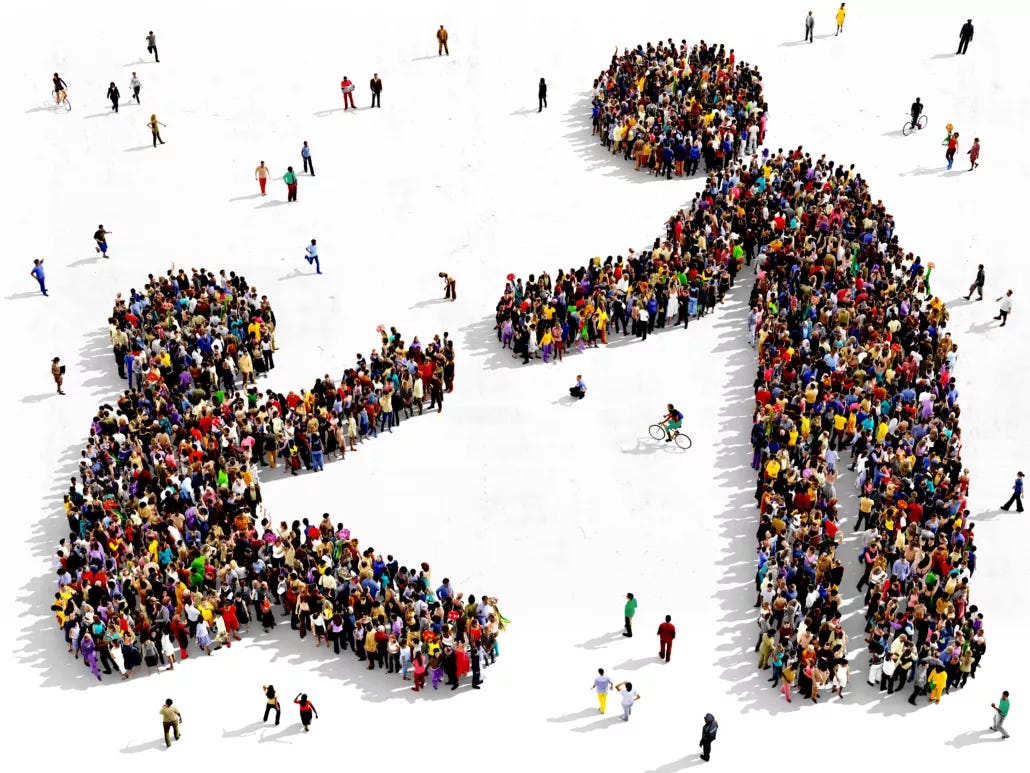Let's Talk About Responsible Social
A framework for a better way to do social, creating a net positive for the user and the communities they serve.
More than half the inhabitants of planet Earth are on social media, which adds up to about 5 billion people, with an average daily use of 2h 27m (source: Digital 2022: Global Overview Report). It is no wonder that social media is often blamed for a lot of society’s modern ills, such as political polarization and a wide array of mental health issues.
COVID-19 accelerated social media adoption and usage, as more people stayed home fiddling with their phones instead of being productive. This is not a surprising development, but something else happened from 2020 to 2021. According to Pew Research’s report, there was a slight reversal in social media’s role in how Americans get their news.
I would even go as far and suggest that this is a natural progression to Americans’ decline of trust in news media. According to a Gaullup report, 36% of Americans have confidence in mass media, the second lowest on record.
It would appear that things are in decline wherever we look. Meta’s internal report that was first reported on by WSJ here shows how aware social media companies are of the impact their products have on people’s mental health. Of course, you can only trust traditional media so much to be objective and fair, when they are in an existential battle with social media companies. But the point is, there is clearly something happening there.
We are then presented with an undeniable problem, with debatable impact. The lazy solution is by way of China’s Social Credit System. But this (hopefully) cannot stand in a democracy. Instead, we are left to the ingenuity of private enterprising individuals to create new technologies and ways of using it.
What if we are able to move away from attention seeking content to purposeful and meaningful content, all while being entertained? What if we are able to create an environment where rooting for others is what brings us satisfaction, instead of the dopamine hit of a meaningless like? What if we could learn to love again?
Too romantic? Perhaps. Instead, let us introduce some sobriety to reverse the rise in youth depression. American children are already shockingly over-medicated. According to the National Survey of Children’s Health (2007-08, 2011-12), the number of children ages 2-5 on ADHD medication has doubled. The shocker is not that there are children ages TWO to FIVE who are on ADHD medication, but in the fact that this number has doubled! I’m not a doctor, but I genuinely cannot imagine a need to give a 2 year old ADHD medication. I may be wrong, but it’s very hard to imagine.
What I can imagine is a new way to create meaningful content and interactions, designed specifically to help you grow. I can also imagine how that can become very boring and stuffy, which is why making it entertaining and gainful is an equally important component.
In comes Responsible Social, a framework to make social media use a net positive experience to the user and the community they serve.
Never Passive
The University of Wisconsin conducted a study (PDF) to determine the relationship between depression symptoms, screen time, and the active and passive usage of Tiktok among adolescents. It found that depressed users are passive users.
A correlation coefficient of 0.46 is a moderate to strong correlation. For those not into statistics, anything between ± 0.50 and ± 1 is strong, ± 0.30 and ± 0.49 is moderate, and anything below .29 is a small correlation.
Of course correlation does not necessarily mean causation, but even if we were to assume that it is a depression-induced behavior, it is still worth changing.
Responsible Social is always active and never passive.
Give Constructive Feedback
One cannot consider feedback without taking trolls into account. Online trolls ushered in a culture of hate and negativity that has ruined many Internet experiences. Different platforms have had varying degrees of success in fighting trolls. Back in 2013, things have gotten so bad at Youtube that people were starting to be put off by the comments, calling it the Wild Wild West. It wasn’t until Youtube finally started providing creators with better moderation tools that it became usable again.
Instead of gravitating toward lazy solutions such as censorship, we could instead design a system that places us in a feedback loop that is constantly updating with your personal development and aspirations.
Giving feedback is an obligation toward our communities, and receiving it is a privilege in a Responsible Social environment.
Seek Growth
Despite the steady decline in university enrollment, Americans overwhelmingly value ongoing learning and growth. While we see the Spring of 2022 enrollment figures drop by a whopping 4.7% from the previous year, 87% of millennials believe learning and development in the workplace is important. So much so that according to statistics by Work Institute, 22% of employees leave their jobs citing lack of career development.

In other words, just because Americans are staying out of universities, doesn’t mean that they have abandoned learning. Just as well, a Social Responsible framework provides meaningful avenues to seek knowledge, growth and talent development.
Explore Self
We all have different capabilities that are governed by our abilities, talents, competence, and personal characteristics. While talent is an ability we are born with, the more time we spend developing it the more competent we become.
Often, we have talents that go undiscovered or underdeveloped. It is then necessary to foster an environment that allows users to explore their own talents, hidden or abandoned.
A Social Responsible approach would create a steady stream of ways to discover and develop talent, in a safe and encouraging community of comparable levels of talent.
Compete
Competition fuels our economy, motivates our sports teams, and pushes us to achieve more. While one can compete against others, it is even more important to learn to compete against oneself, because that represents a mindset shift from competing to win to competing to grow.
That is not to say that competing to win is a bad thing, far from it. All forms of healthy competition are good for us and our communities. When we have a healthy competitive environment, participants are all given an equal opportunity to win. What we don’t want is negative competition, which is when we cross moral and ethical lines to win at all costs.
Responsible Social utilizes leaderboards and other gamification tactics make competing both engaging and fun.
Community Support
When we think of community support IRL (in real life), we often think of helping an elderly lady put her groceries away, or picking up someone else’s trash from the street, etc. They are activities that embody what we would consider as a Good Samaritan. That is, someone who is compassionate and helpful.
Extending this online can be translated to promoting others in their competitive endeavors. Providing more feedback to more people, forming sub-groups with special tasks, are examples of things we can do to be a positive force within a given community.
With those 6 components, we have a framework to build Responsible Social apps. We can help lower the levels of toxicity experienced by billions online by building software that adds value to our world.
Let us build Responsible Social.


